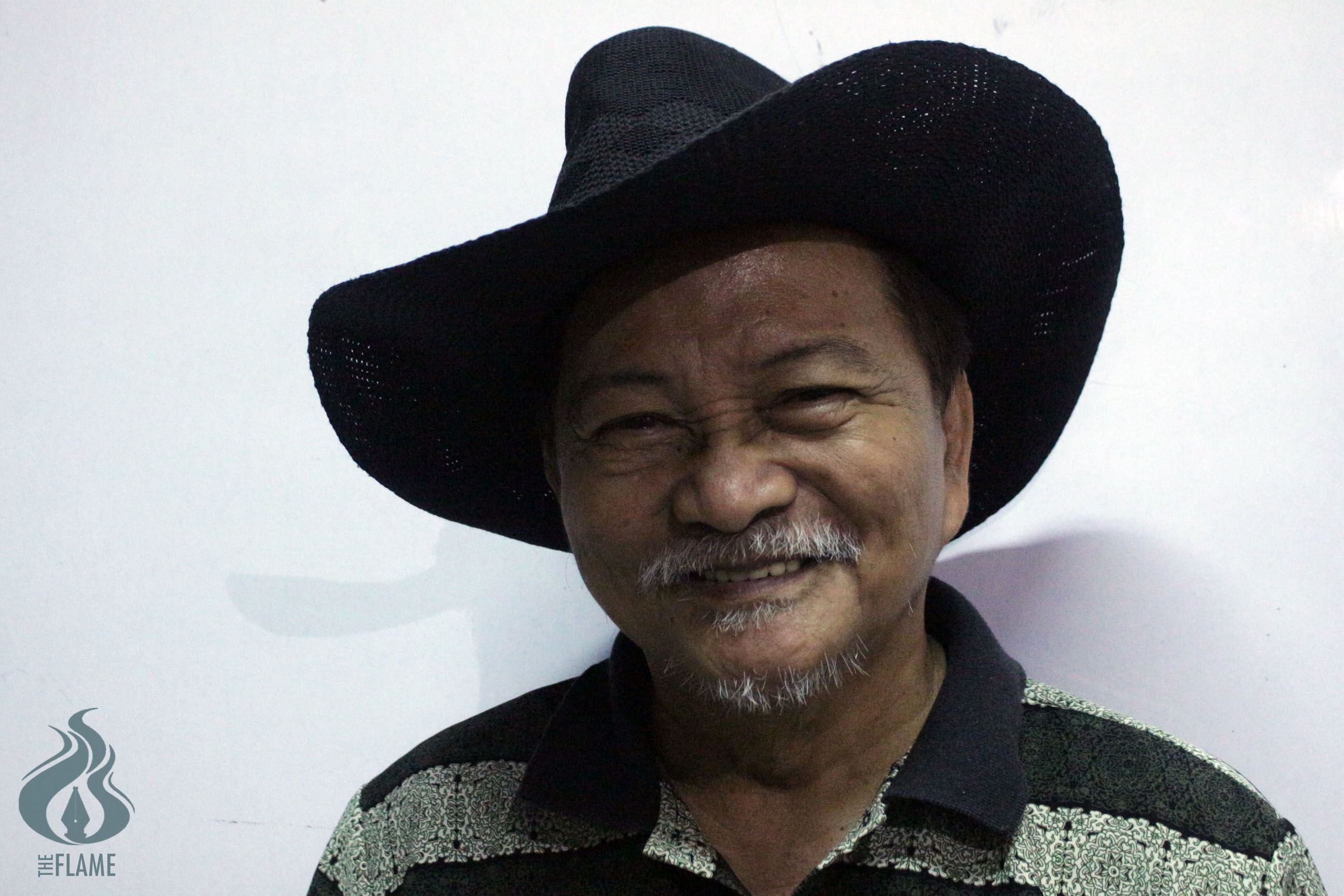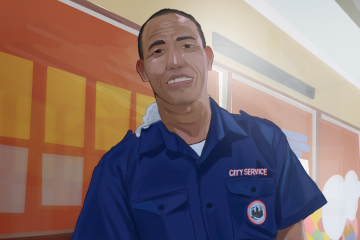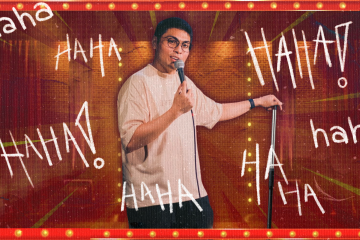
ONE fortunate evening in the 1980s, some rising poets were given the chance to showcase their creative mettle inside none other than the grand Cultural Center of the Philippines. One of them was a middle-aged man wearing a black tuxedo on top of a patterned polo shirt, complemented by a cowboy hat that he proudly placed on top of his head.
Just by looking at the way he walked toward the stage, it was evident that this man was someone who came from outside the city—a man of a place rich with the native cultures of the north.
The spotlight beamed brightly on him, as though welcoming him to the stage. He then proceeded to recite his poem that boasted of the colorful traditions of Ilocos.
Now 71 years old, Arnold Azurin arrived for his interview in the same style he donned years before: a cowboy hat, patterned polo shirt, blue denim pants, and a striking tattoo.
Being a poet, essayist, and critic for almost four decades, Azurin has written many pieces appreciating the Philippines’ cultural heritage and the issues it faces time and time again. In spite of all he has achieved, he gleefully recalls the story of how a college student from Vigan became interested in writing poems and essays about the culture of his motherland.
‘Promdi bookworm’
As a philosophy major at then Faculty of Philosophy and Letters of the University, Azurin was always naturally curious and an avid learner, spending most of his time surrounded by books as a self-proclaimed “promdi bookworm.”
“Of all students in philosophy, siguro ako lang ‘yung nagbasa ng ‘Summa Theologica’ kasi nagtatrabaho ako sa library. Karamihan ng pupunta sa akin, binabasura ko [kasi] nagbabasa ako. […] I was an honest promdi kasi babasahin ko ang available na mababasa ko,” he shares.
The variety of literary works Azurin read made him critical about how the culture and history of the Philippines is presented. Being an artist at heart, the critical writer chose to share his research about the nation’s culture through poems and essays—a talent that was honed and amplified by his Ilocano roots.
Naive beginnings
Azurin’s admiration for Philippine culture was sparked by his hometown. The writer cannot help but look back on his childhood with great fondness, for the culture of his town fueled his ideas and beliefs.
“It’s a wonderful moment for me to travel back to my childhood in Vigan because it was my childhood that made me possess memories, that made me one with the town, with the river, with the plaza, intimately with the pearled memories of the town,” he shares.
Azurin grew up in a typical Filipino household: he played in a yard and fiddled with clay pots, only to discover after years of studying anthropology that those pots are relevant to the history of Ilocanos.
“Kaya pala meron kaming mga malalaking clay [pots] dahil the Ilocanos at that time were making leather out of animal hide, because those were special products sold to the Japanese, to the South Chinese, [and] to the Chang in Indochina. [‘Y]ung leather [ay] para sa footwear nila, para sa armor nila,” an astonished Azurin narrates.
Such discoveries, he says, made him who he is now. They helped shape his views on his own cultural heritage and that of the Philippines, which he continues to impart to others through his literary works.
“I was privileged to make […] memories of my childhood, memories of the yard, [a] part of my becoming a citizen and a mind that can view Philippine society in a distinct manner,” he says.
‘Distorted, contorted, convoluted’ culture
Ever since he was a young Thomasian philosopher, Azurin had already been keen in observing the different traits of Filipinos. He was always curious about the Filipino psyche.
“[P]umupunta lang ako sa Feast of the Black Nazarene noong graduate na ako just to observe. What is this experience all about? I want to know what’s driving the Filipino mind to go through that kind of frenzy,” he shares.
Philippine culture, for Azurin, is often misrepresented in most Filipino textbooks. He aims to correct these wrong representations by weaving his evaluation of culture into his literary works.
In his writings, he tackles the importance of using the mother tongue in basic education, the visible effect of colonization which has tainted the different cultures of the country, and the intricate thinking processes of the Filipino people.
As the modern world continues to challenge the Filipino cultural identity, Azurin hopes that he has conveyed enough knowledge to the new generation.
“[I hope] I can relate to the younger generation my becoming a young Filipino philosopher trying to make sense of our distorted, contorted, convoluted culture,” Azurin expresses. F



